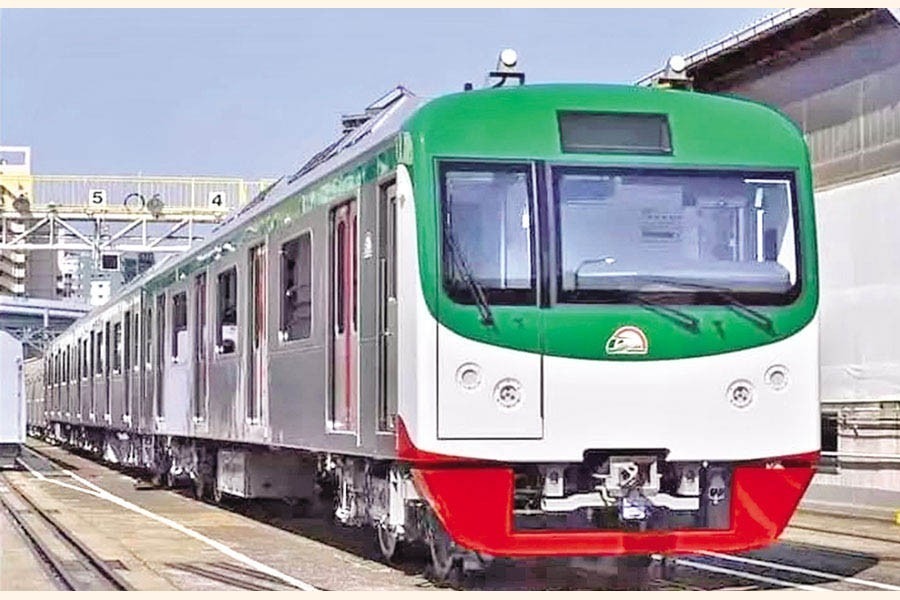
Published :
Updated :

The Dhaka Mass Transit Company Limited (DMTCL) finds itself in a dilemma over the expansion of the metro rail network, particularly involving the Contract Package (CP) 6 of MRT Line 5 North. Despite notable interest from global firms, the tendering process appears to have been shaped by Japan-specific conditions that have effectively excluded all but a handful of Japanese bidders. This limited competition has culminated in a staggering 162 per cent cost overrun in CP 6, raising concerns about transparency and long-term sustainability.
According to a report in The Financial Express, the lowest bid for CP 6 of the MRT Line 5 North was submitted at over Tk 155 billion-substantially higher than previous estimates and placing the DMTCL in a tight corner. Matters have been made more complicated by the rigid financing rules imposed by the Japan International Cooperation Agency (JICA), which limit little room for price negotiation. The DMTCL is currently tasked with developing a 128-kilometre-long MRT network comprising six lines that will span both the north-south and east-west corridors of Dhaka.
Procurement experts and engineers have flagged concerns, warning that the procurement framework for metro projects is increasingly being monopolised by Japanese firms. The tender documents, they argue, carry systemic limitations that stifle open competition, ultimately raising questions about fairness and technological self-reliance in a flagship infrastructure project. Presently, DMTCL is implementing two JICA-funded metro rail lines-MRT Line 1 and MRT Line 5 North. In the case of CP 6, while 15 firms initially expressed interest during the prequalification phase launched in August 2024, only four-all Japanese-were eventually shortlisted. Of these, just two firms submitted final bids. The lowest bid stood at Tk 155.27 billion, with the second at Tk 164.30 billion. These figures far exceeded the revised cost estimate of Tk 59.51 billion, which itself was an increase from the Tk 39.67 billion approved in the original 2019 Development Project Proposal (DPP). The bids even surpassed the engineering estimate of Tk 61.26 billion prepared in 2025 by the project's Japanese consultant. Officials involved in the bidding process believe this pattern reveals a broader structural issue. The tendering terms, they argue, are skewed in favour of Japanese firms, deterring other capable international companies. The JICA's guidelines which prohibit price negotiation once the lowest bidder is identified, further complicate matters by tying the hands of the DMTCL even when costs surpass rational thresholds. On the other hand, sources associated with the Japanese consultants defend the current model, noting that many donor-funded projects around the world-whether backed by China, India, or others-tend to prioritise firms from the donor country. Japan, they point out, has played a pioneering role in metro rail technology and project execution, which should not be overlooked.
Under the circumstances, the issue should not be viewed as merely monopolistic. While donor priorities and technological expertise must be acknowledged, experts should work towards reaching balanced outcomes. There has to be a framework that allows reasonable negotiations for avoiding project deadlock.


 For all latest news, follow The Financial Express Google News channel.
For all latest news, follow The Financial Express Google News channel.